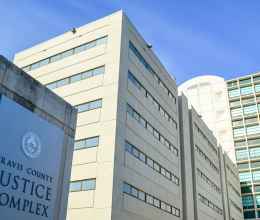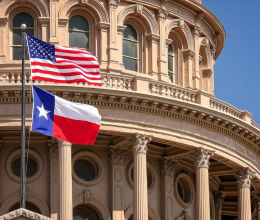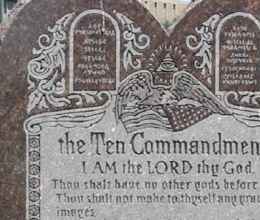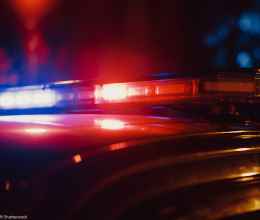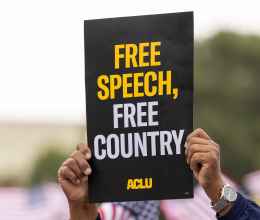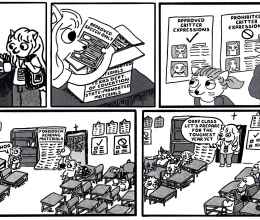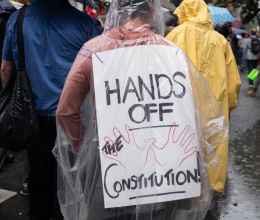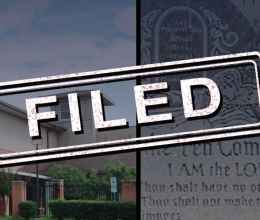
This content is intended to serve as general information; it is not legal advice nor intended as legal advice.
Taking photographs of things that are plainly visible from public spaces is a constitutional right – and that includes federal buildings, transportation facilities, and police and other government officials carrying out their duties.
Unfortunately, there is a widespread, continuing pattern of law enforcement officers ordering people to stop taking photographs from public places, and harassing, detaining and arresting those who fail to comply.
This is the guide to your rights when taking pictures or recording video in public.
Your rights as a photographer
- When in public spaces where you are lawfully present you have the right to photograph anything that is in plain view. That includes pictures of federal buildings, transportation facilities, and police. Such photography is a form of public oversight over the government and is important in a free society.
- When you are on private property, the property owner may set rules about the taking of photographs. If you disobey the property owner’s rules, they can order you off their property (and have you arrested for trespassing if you do not comply).
- Police officers may not generally confiscate or demand to view your photographs or video without a warrant.Even if you are being arrested, the police may not search the digital contents of a cell phone without a warrant. The same rule should apply to digital cameras, and photographers should clearly tell officers they do not consent to a search of their digital files.
- Police may not delete your photographs or video under any circumstances.
- Police officers may legitimately order citizens to cease activities that are truly interfering with legitimate law enforcement operations. Professional officers, however, realize that such operations are subject to public scrutiny, including by citizens photographing them.
- Note that the right to photograph does not give you a right to break any other laws. For example, if you are trespassing to take photographs, you may still be charged with trespass.
If you are stopped or detained for taking photographs
- Always remain polite and never physically resist a police officer.
- If stopped for photography, the right question to ask is, “am I free to go?” If the officer says no, then you are being detained, for which an officer must have reasonable suspicion that you have or are about to commit a crime or are in the process of doing so. Until you ask to leave, your being stopped is considered voluntary under the law and is legal.
- If you are detained, politely ask what crime you are suspected of committing, and remind the officer that taking photographs is your right under the First Amendment and does not constitute reasonable suspicion of criminal activity.
Special considerations when videotaping
With regards to videotaping, there is an important legal distinction between a visual photographic record (fully protected) and the audio portion of a videotape, which some states have tried to regulate under state wiretapping laws.
- Such laws are generally intended to accomplish the important privacy-protecting goal of prohibiting audio “bugging” of private conversations. However, in nearly all cases audio recording the police is legal.
- In states like Texas that allow recording with the consent of just one party to the conversation, you can tape your own interactions with officers without violating wiretap statutes (since you are one of the parties) regardless of location.
- In situations where you are an observer but not a part of the conversation, you generally can record the audio in police interactions if they occur in public where there is no expectation of privacy.
- The ACLU believes that laws that ban the taping of public officials’ public statements without their consent violate the First Amendment. A summary of state wiretapping laws can be found here.
What you can do if you think you’re witnessing police abuse or brutality
- Stand at a safe distance and, if possible, use your phone to record video of what is happening. As long as you do not interfere with what the officers are doing and do not stand close enough to obstruct their movements, you have the right to observe and record events that are plainly visible in public spaces.
- Do not try to hide the fact that you are recording. Police officers do not have a reasonable expectation of privacy when performing their jobs, but the people they are interacting with may have privacy rights that would require you to notify them of the recording. In many states (see here) you must affirmatively make people aware that you are recording them.
- Police officers may not confiscate or demand to view your photographs or video without a warrant, and they may not delete your photographs or video under any circumstances. If an officer orders you to stop recording or orders you to hand over your phone, you should politely but firmly tell the officer that you do not consent to doing so, and remind the officer that taking photographs or video is your right under the First Amendment. Be aware that some officers may arrest you for refusing to comply even though their orders are illegal. The arrest would be unlawful, but you will need to weigh the personal risks of arrest (including the risk that officer may search you upon arrest) against the value of continuing to record.
- Whether or not you are able to record everything, make sure to write down everything you remember, including officers’ badge and patrol car numbers, which agency the officers were from, how many officers were present and what their names were, any use of weapons (including less-lethal weapons such as Tasers or batons), and any injuries suffered by the person stopped. If you are able to speak to the person stopped by police after the police leave, they may find your contact information helpful in case they decide to file a complaint or pursue a lawsuit against the officers.
Photography at the airport
Photography has also served as an important check on government power in the airline security context.
The Transportation Security Administration (TSA) acknowledges that photography is permitted in and around airline security checkpoints as long as you’re not interfering with the screening process. The TSA does ask that its security monitors not be photographed, though it is not clear whether they have any legal basis for such a restriction when the monitors are plainly viewable by the traveling public.
The TSA also warns that local or airport regulations may impose restrictions that the TSA does not. It is difficult to determine if any localities or airport authorities actually have such rules. If you are told you cannot take photographs in an airport you should ask what the legal authority for that rule is.
The ACLU does not believe that restrictions on photography in the public areas of publicly operated airports are constitutional.
